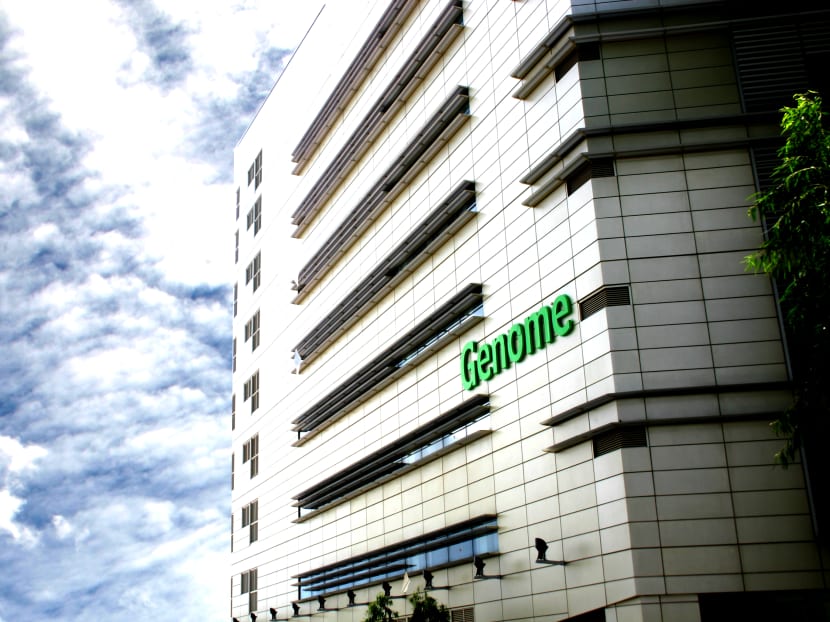Scientists in S’pore have uncovered 'super-enhancers' of stomach cancer
A team of scientists has uncovered a new class of “master control elements” in stomach cancer, which control critical cancer genes and proteins required for stomach tumours to survive and grow.

This study on "super-enhancers" in stomach cancer was led by A*STAR’s Genome Institute of Singapore, located at Biopolis, by using a technology known as Nano-ChIPseq. Photo: Genome Institute of Singapore.
SINGAPORE – A team of scientists has uncovered a new class of “master control elements” in stomach cancer called “super-enhancers”, which control critical cancer genes and proteins required for stomach tumours to survive and grow.
Published in scientific journal Nature Communications, this study was led by A*STAR’s Genome Institute of Singapore (GIS), in collaboration with Duke-NUS Medical School, the Cancer Science Institute of Singapore at the National University of Singapore (NUS), the Singapore General Hospital (SGH), the Weatherall Institute of Molecular Medicine at Oxford University and the Singapore Gastric Cancer Consortium (SGCC).
Currently, stomach cancer is the fifth most common cancer worldwide and the third leading cause of global cancer death, according to the World Health Organization. Most gastric cancers are diagnosed late, and the disease is often resistant to current clinical treatments.
By studying these super-enhancers in stomach tumours, the team was able to shed light on how these elements impact the risk of stomach cancer development and progression of the disease.
This means that stomach cancer patients whose tumours showed high numbers of super-enhancers exhibited a significantly poorer survival rate. Selective activation of these super-enhancers could explain why certain groups of people are at risk of developing the disease.
“Future work in our lab will investigate how such super-enhancers can be disrupted by drugs, which will open up new avenues for cancer therapy,” said the study’s corresponding author Prof Patrick Tan, Deputy Executive Director of A*STAR’s Biomedical Research Council and an associate faculty member at the GIS.
The researchers made this finding using technology called Nano-ChIPseq. Developed at GIS, Nano-ChIPseq enables the study of epigenomic changes in clinical samples obtained directly from stomach cancer patients, as opposed to laboratory cultured cell lines.
Unlike DNA, which is stable and unchanging, epigenomic instructions are strongly influenced by factors such as food, infectious agents and chemicals, suggesting that they can be modified by environmental risk factors.
The team also identified two DNA-binding proteins as drivers for the formation of tumour-specific super-enhancers, which may serve as potential drug targets for stomach cancer.
“We hope that our findings will encourage the scientific community to embrace our technology as a means to rapidly uncover master control elements that are highly relevant to diseases and clinical outcomes. This effort may eventually change the way stomach and other cancers are managed, which will enhance the clinical outcomes of cancer patients,” Prof Tan added.
“The study suggests that extensive alterations in gene regulation, and not genes themselves, explain deep mysteries of gastric cancer, which are known to exhibit small numbers of mutations and deep involvement of bacterial infection (which is) an environmental factor,” said Dr Toshikazu Ushijima, Chief of Division of Epigenomics at the National Cancer Center Research Institute in Japan, and a member of the SGCC Scientific Advisory Board.
GIS Executive Director Prof Ng Huck Hui added: “As we constantly work to find better treatments for cancer, it is also important that we find more efficient ways to study how epigenomic changes can drive the formation of cancerous cells from healthy cells.
“A greater understanding about molecular changes in diseases can potentially lead to early therapeutic intervention and improved care for the patients.”






